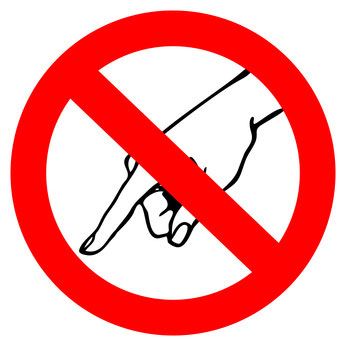Do it yourself SEO
People come to us from time to time and ask "What is the secret of SEO". We tell them there isn't one. What they are really asking is, "why can't I find my own website on Google?", which is a fair question, and "Why doen't my website rank higher?" which is a much more difficult one.
Since you can often see their faces dropping after this news, we then pick them up and tell them that there is something you can do, but that anyone who guarantees them a top spot is simply a snake-oil salesman. We tell them that it is all about time and attention to detail. The good news is that if they do the right things, they will start to see their website improve their ranking. Even better news, if they want to do it for themselves, it is free.
This led us to thinking that we ought at some time to provide a guide and some video content for the clients of ours who like to do things for themselves, so look out for that. Meantime, it seems a good idea to jot down a simple introduction to outline the sort of things you should be doing or thinking about doing if you want to improve your own SEO.
Keywords
Now before the SEO experts all leap out from behind a bush and tell us that "keywords are dead", they aren't and in one sense they never will be. If you don't research your business, how will you ever be able to tell anyone about it? Keywords and key phrses in this sense become the way you define your content and what you think your visitors would like to see. The job itself of researching your keywords is both easy and tedious. We suggest you do it this way:
- Describe your business using key headings. You know what it does and what it is about, what services and products it offers and wants to offer. You also know what you would like to be known for doing. (If you don't know,then you have some serious work to do). If you are a new business or just about to start up, just set about it the same way and describe everything you would like your business to be.
- Once you have your key headings, the next stage is to define the keywords and phrases for each of the headings you have created. Be exhaustive. If you run out of ideas, draft in some friends, pull together a brainstorming meeting, put it on to the board agenda - whatever is needed to give you as many keywords and key phrases as you can think of.
- Now go online and search using the same keywords and key phrases. At this point, you are looking for related items. The good news is that Google provides you with a ready-made list at the end of each page of search results - a list of 8 or so linked phrases and words to the ones you have just typed in. Add these to your lists.
- In the next stage you start to add some quality control. Try to order the phrases and words, rating them in the way reflects their importance to you. Remember that it is always harder to be found for "widgets" than it is for "how widgets work" - or to put it another way, it is the longer search phrases that tend to be the more unique.
- To get some objectivity, now is a good time to check out your competitors. Who gets found for what? If nothing else, it will show you which phrases you will need to work the hardest on to improve your rankings. It will also help you to organise the most popular and common terms in your field.
- Now comes the rewarding point of all this reasearch, the planning. Google Adwords offer a great tool "the Google Adwords Planner" to help you do your research. Don't worry about being asked for money, using the keywords tool is free. Google has a vested interest in not being seen as just pumping the highest spending advertiser in your direction, but in being seen to try and present the best and most relevant sites on any topic. The tool is free because it needs it to work.

Think local
It is unlikely the head of a multi-national is reading this - if he or she is "hi" - yes, we would love to do some work for you. The greatest percentage of businesses are local or regional. This is truer still in large countries like the USA or Australia. Nobody is going to be looking for a plumber who has to travel 2,000 miles if they have a leak in their bathroom. Researching your business in terms of its local reach is a good way to ensure that
If I type in the search term "security alarms", I get 3,050,000 results. Tyoe in the term "security alarms, Swansea" and the list is narrowed down to 88,000. This is still a big number, but so much easier to be in the top 10 for this than nationally. You should start by optimizing for the geographic areas that have the highest demand for the specific product or service that you want to sell and working down from there. Once again, Google Analytics has a great tool which you can use to identify this - the location report. Thinking local has the value of ensuring that you are more likely to be found to begin with.
There is a second reason for "thinking local", which is simply the one of distance. People are far more likely to travel to you as well as ask you to come to them. This might not matter if you have a shop that is trying to sell nationally or internationally, but most small to medium size businesses are rooted firmly in the community. So why ignore the opportunity? Use the locality to your advantage to get people to come to you. Concentrate on getting local references, testimonials and reviews that your audience can identify with and it will pay you back handsomely in the longer term
Think like a search engine
Google guidelines tell you you shouldn't, but if you don't understand how search engines operate then you are missing a trick. We have often maintained they are pretty dumb compared to the rest of us, but you can provide the right structure, naming and support content to make sure they pick up the message you want them to. Think of it as providing them a helping hand along the way. Step back a little further and you can start to ask yourself, "What does Google want me to say? How will it read the content of my page and present it back to the world?"
A couple of things to remember are:
- Google sees my pages - not my website, so have I optimised each and every page for viewing (hint here - if you have not, then now is a good time to start getting that fixed).
- Is my content good and strong, or is this page just a filler. Dump the weak stuff and start telling a good strong story.
- Is it absolutely clear what my website is about? This helps the search engine to classify your site correctly. Correctly classified, it is more likely to be found.
- Link well - with the most important links obvious and visible to the search engine as well as to your human viewer. This counts for internal links just as much as it does for external ones
- Authorship can be important. Why else would the "big names" keep cropping up? They have earned their "authority". This is something you can concentrate on as well, building your brand accordingly.


Is your content good enough?
We mentioned the concept of "thin" content as one of the things that will count against your individual pages. You should go through the pages of your website periodically and ask yourself what each of the pages does for the reader. If you are unable to read your own copy without bias, ask someone neutral to look through a page and tell you what it says to them.
Once you have done this you can start to weed out the thin pages and replace the content with tthe things Google likes. In its own words.
Get the simple things organised
Let's face it, life is often spider-like. It zigs and it zags, and over the years the same can happen to websites. There are several ways you can check the structure and well-being of your site.
- Check your site for broken links. There are several broken link checkers, such as the one for W3C
- Do the same for 404 pages
- Check to see how quickly your pages load.
Now, at this point, you may or may not feel competent to fix these things. If you do, that's great. If not, then at least make sure you keep a list of the errors so you can go through them in turn once you have learned how to fix them
Provide high-quality content on your pages, especially your homepage. This is the single most important thing to do. If your pages contain useful information, their content will attract many visitors and entice webmasters to link to your site. In creating a helpful, information-rich site, write pages that clearly and accurately describe your topic. Think about the words users would type to find your pages and include those words on your site.
Dont do this
The final part of this post simply aims to draw your attention to the Google list of Don't-dos, the things that could get your site banned and which will certainly downgrade your quality in the search-engine rankings. You may have done some of these things in the past when the rules were less-defined. Now is a good time to look to remove them.
- Automatically generated content
- Belonging or participating in link schemes
- Creating pages with little or no content - this is an interesting one as so many sites are being built with almost no written content, just headlines and calls to action
- Using cloaking to hide content
- Unusual re-directs
- Hidden text or links
- Doorway pages
- Scraped pages
- Irrelevant keywords - which is another kind of keyword stuffing
- Malicious pages which hack or spam the user or visitor
For a full list of the dos and donts, we recommend you spend some time reading Google SEO guidelines. They are simple to understand and make it quite clear what is expected from any web page.







